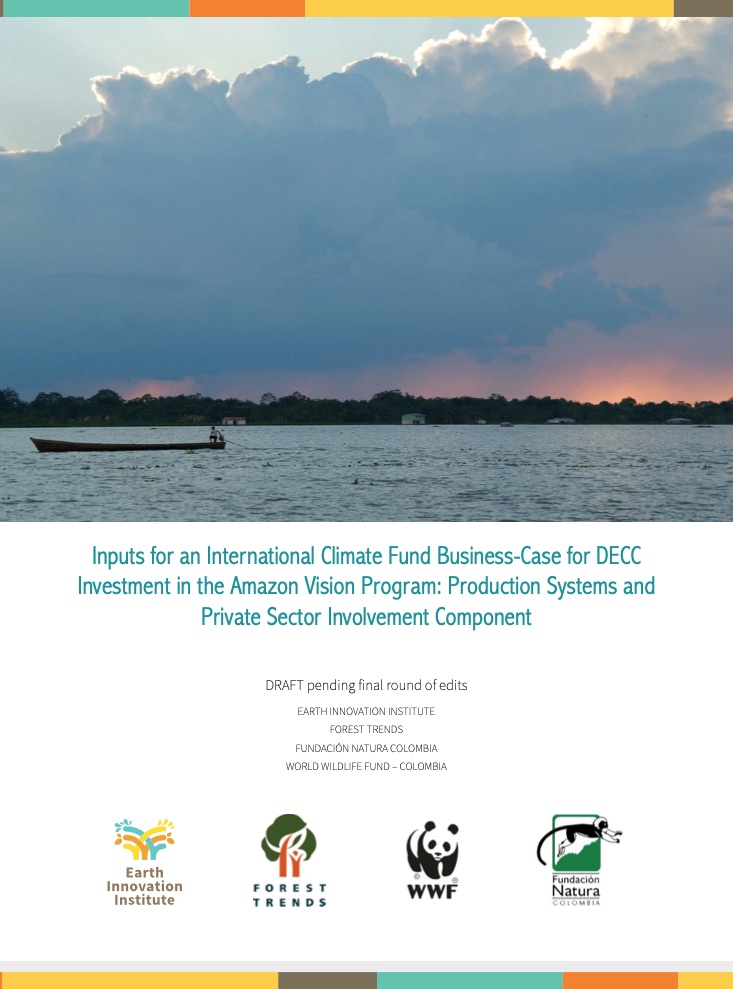PUBLICATIONS
2017
Apr
Colombia is well-positioned to become a leader in addressing the pressing global challenges of climate change, tropical deforesation and food security. At the 2009 Conference of the Parties (COP) of the United Nations Framework Convention on Climate Change (UNFCCC) Colombia announced an ambitious goal of reaching zero net deforestation in the Colombian Amazon by 2020. To reach this goal, the national government is currently developing a comprehensive program called the “Amazon Vision”. If successful, this strategy could avoid globally significant amounts of CO2 to the atmosphere by 2020. These emissions reductions would be accompanied by substantial co-benefits in the form of improved smallholder farmer livelihoods, better air quality, biodiversity conservation and regulation of water flow in watersheds.
In order to achieve zero net deforestation in the Amazon region by 20203, Colombia must confront a number of critical challenges facing the region, including limited governance capacity exacerbated by decades of armed conflict, an illicit crop industry and populations isolated by inadequate infrastructure. Extensive cattle ranching is the single most important use of cleared land in the Amazon, with pastures occupying some 70% of deforested land. Transforming this dominant livelihood system to sustainable practices, such as intensive cattle ranching, silvopastoral or agroforestry systems that have the potential to improve livelihoods while reducing the need for cleared land, is one of the most critical challenges for Amazon Vision.
There is also the challenge of fragmentation. Governments, farm sectors, companies and communities have different goals and interests. At one level, the challenge and the opportunity of the Colombian Amazon Vision program is to foster a new “low-emission rural development” model in which governments, private sector, farm sector and communities become aligned and in agreement upon regional milestones for reducing deforestation, increasing production and improving livelihoods. For these shared milestones to be realized, they must be accompanied by incentive systems that drive changes in land-use systems and improvements in governance capacity, supported by monitoring platforms that track progress towards these milestones.

